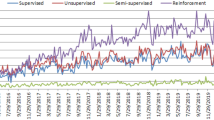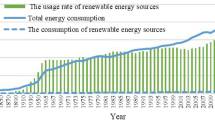Abstract
The theft of electricity is regarded as a global problem which creates negative impacts for both electricity users and utility companies. The economic development of utility companies gets destabilized which further leads to electric hazards, thereby increasing the energy cost. Numerous methods are utilized for substantial detection of electricity theft, but these approaches consume more time and are inefficient and expensive. Electricity theft detection also uses artificial intelligence techniques like deep learning and machine learning. Despite innovative and remarkable characteristics of these approaches, their performance is unsatisfactory. Taking these aforementioned issues into consideration, a cascaded region-based convolutional neural network with a cascade of specialized regressors is proposed in this work for efficient detection of electricity theft. The proposed classifier determines the close false positives for adjacent stage training enabling the generation of high quality detection of electricity theft. Initially, pre-processing which combines data interpolation and data normalization is carried out for the process of recovering missing values. An adaptive synthetic technique is utilized to address class imbalance issue owing to unbalanced data. In order to extract relevant features, a hybrid whale optimized chicken swarm algorithm is used which selects the accurate features thus performing the effective modelling of obtained electrical parameters. In comparison with existing approaches, the proposed work generates optimized results for performance metrics values with an accuracy of 94.3%, F1-Score of 94.58%, and precision of 94%.
















Similar content being viewed by others
Availability of data and materials
Not applicable.
References
Park CH, Kim T (2020) Energy theft detection in advanced metering infrastructure based on anomaly pattern detection. Energies 13(15):3832
Damaševičius R, Jovanovic L, Petrovic A, Zivkovic M, Bacanin N, Jovanovic D, Antonijevic M (2024) Decomposition aided attention-based recurrent neural networks for multistep ahead time-series forecasting of renewable power generation. PeerJ Comput Sci 18(10):e1795
Bacanin N, Jovanovic L, Zivkovic M, Kandasamy V, Antonijevic M, Deveci M, Strumberger I (2023) Multivariate energy forecasting via metaheuristic tuned long-short term memory and gated recurrent unit neural networks. Inf Sci 642:119122
Otuoze AO, Mustafa MW, Mohammed OO, Saeed MS, Surajudeen-Bakinde NT, Salisu S (2019) Electricity theft detection by sources of threats for smart city planning. IET Smart Cities 1(2):52–60
Khan ZA, Adil M, Javaid N, Saqib MN, Shafiq M, Choi JG (2020) Electricity theft detection using supervised learning techniques on smart meter data. Sustainability 12(19):8023
Sankarananth S, Karthiga M, Suganya E, Sountharrajan S, Prasad Bavirisetti D (2023) AI-enabled metaheuristic optimization for predictive management of renewable energy production in smart grids. Energy Rep 10:1299–1312
Ibrahem MI, Nabil M, Fouda MM, Mahmoud MM, Alasmary W, Alsolami F (2020) Efficient privacy-preserving electricity theft detection with dynamic billing and load monitoring for AMI networks. IEEE Internet Things J 8(2):1243–1258
Singh SK, Bose R, Joshi A (2019) Energy theft detection for AMI using principal component analysis based reconstructed data. IET Cyber-Phys Syst Theory Appl 4(2):179–185
Yao R, Wang N, Liu Z, Chen P, Sheng X (2021) Intrusion detection system in the advanced metering infrastructure: a cross-layer feature-fusion CNN-LSTM-based approach. Sensors 21(2):626
Otuoze AO, Mustafa MW, Abioye AE, Sultana U, Usman AM, Ibrahim O, Omeiza IO, Abu-Saeed A (2022) A rule-based model for electricity theft prevention in advanced metering infrastructure. J Electr Syst Inf Technol 9(1):1–17
Munawar S, Javaid N, Khan ZA, Chaudhary NI, Raja MA, Milyani AH, Ahmed Azhari A (2022) Electricity theft detection in smart grids using a hybrid BiGRU–BiLSTM model with feature engineering-based preprocessing. Sensors 22(20):7818
Qu Z, Li H, Wang Y, Zhang J, Abu-Siada A, Yao Y (2020) Detection of electricity theft behavior based on improved synthetic minority oversampling technique and random forest classifier. Energies 13(8):2039
Duarte Soares L, de Souza QA, López GP, Carreño-Franco EM, López-Lezama JM, Muñoz-Galeano N (2022) BiGRU-CNN neural network applied to electric energy theft detection. Electronics 11(5):693
Dimf GP, Kumar P, Paul Joshua K (2023) CNN with BI-LSTM electricity theft detection based on modified cheetah optimization algorithm in deep learning. SSRG Int J Electr Electron Eng 10(2):35–43
Somefun TE, Awosope CO, Chiagoro A (2019) Smart prepaid energy metering system to detect energy theft with facility for real time monitoring. Int J Electr Comput Eng 9(5):4184
Singh SK, Bose R, Joshi A (2018) Entropy-based electricity theft detection in AMI network. IET Cyber-Phys Syst Theory Appl 3(2):99–105
Adil M, Javaid N, Qasim U, Ullah I, Shafiq M, Choi JG (2020) LSTM and bat-based RUSBoost approach for electricity theft detection. Appl Sci 10(12):4378
Hasan MN, Toma RN, Nahid AA, Islam MM, Kim JM (2019) Electricity theft detection in smart grid systems: a CNN-LSTM based approach. Energies 12(17):3310
Hu T, Guo Q, Shen X, Sun H, Wu R, Xi H (2019) Utilizing unlabeled data to detect electricity fraud in AMI: a semisupervised deep learning approach. IEEE Trans Neural Netw Learn Syst 30(11):3287–3299
Yan Z, Wen H (2021) Electricity theft detection base on extreme gradient boosting in AMI. IEEE Trans Instrum Meas 70:1–9
Pamir JN, Javaid S, Asif M, Javed MU, Yahaya AS, Aslam S (2022) Synthetic theft attacks and long short term memory-based preprocessing for electricity theft detection using gated recurrent unit. Energies 15(8):2778
Zhang R, Venkitasubramaniam P (2019) False data injection and detection in LQG systems: a game theoretic approach. IEEE Trans Control Netw Syst 7(1):338–348
Jain S, Choksi KA (2019) Pindoriya NM (2019) Rule-based classification of energy theft and anomalies in consumers load demand profile. IET Smart Grid 2(4):612–624
Wang B, Wang X, Wang N, Javaheri Z, Moghadamnejad N, Abedi M (2023) Machine learning optimization model for reducing the electricity loads in residential energy forecasting. Sustain Comput Informat Syst 38:100876
Stoean C, Zivkovic M, Bozovic A, Bacanin N, Strulak-Wójcikiewicz R, Antonijevic M, Stoean R (2023) Metaheuristic-based hyperparameter tuning for recurrent deep learning: application to the prediction of solar energy generation. Axioms 12(3):266
Punmiya R, Choe S (2019) Energy theft detection using gradient boosting theft detector with feature engineering-based preprocessing. IEEE Trans Smart Grid 10(2):2326–2329
Yao D, Wen M, Liang X, Fu Z, Zhang K, Yang B (2019) Energy theft detection with energy privacy preservation in the smart grid. IEEE Internet Things J 6(5):7659–7669
Zheng Z, Yang Y, Niu X, Dai HN, Zhou Y (2017) Wide and deep convolutional neural networks for electricity-theft detection to secure smart grids. IEEE Trans Ind Inf 14(4):1606–1615
Shavali TS, Ahmed MK, Fahad S, Zaheer MA (2022) Use of deep learning and random forest algorithms to predict electricity theft in power grids. J Algebraic Stat 13(3):2368–2372
Tanwar S, Kumari A, Vekaria D, Raboaca MS, Alqahtani F, Tolba A, Neagu BC, Sharma R (2022) GrAb: a deep learning-based data-driven analytics scheme for energy theft detection. Sensors 22(11):4048
Aslam Z, Javaid N, Ahmad A, Ahmed A, Gulfam SM (2020) A combined deep learning and ensemble learning methodology to avoid electricity theft in smart grids. Energies 13(21):5599
Ullah A, Javaid N, Asif M, Umar Javed M, Sani Yahaya A (2022) Alexnet, AdaBoost and artificial bee colony based hybrid model for electricity theft detection in smart grids. IEEE Access 10:18681–18694
Haq EUI, Pei C, Zhang R, Jianjun H, Ahmad F (2023) Electricity-theft detection for smart grid security using smart meter data: a deep-CNN based approach. Energy Rep 9:634–643
Lepolesa LJ, Achari S, Cheng L (2022) Electricity theft detection in smart grids based on deep neural network. IEEE Access 10:39638–39655
Funding
The authors received no specific funding for this study.
Author information
Authors and Affiliations
Contributions
Conceptualization was performed by Dimf Greagory Prema kumara. Data Curation was done by Dimf Greagory Prema kumara. Methodology was presented by Parasuraman Kumar, Smitha Jolakula Asoka & Dimf Greagory Prema kumara. Project administration was carried out by Parasuraman Kumar and Smitha Jolakula Asoka. Supervision was conducted by Parasuraman Kumar and Smitha Jolakula Asoka. Validation was provided by Parasuraman Kumar and Smitha Jolakula Asoka. Writing—original draft was prepared by Dimf Greagory Prema kumara. Writing—review & editing was drafted by Parasuraman Kumar, Smitha Jolakula Asoka & Dimf Greagory Prema kumari.
Corresponding author
Ethics declarations
Conflict of interest
The authors have no conflict of interest to declare that are relevant to the content of this article.
Ethical approval
Not applicable.
Additional information
Publisher's Note
Springer Nature remains neutral with regard to jurisdictional claims in published maps and institutional affiliations.
Rights and permissions
Springer Nature or its licensor (e.g. a society or other partner) holds exclusive rights to this article under a publishing agreement with the author(s) or other rightsholder(s); author self-archiving of the accepted manuscript version of this article is solely governed by the terms of such publishing agreement and applicable law.
About this article
Cite this article
Kumari, D.G.P., Kumar, P. & Asoka, S.J. Smart grid electricity theft prediction using cascaded R-CNN and hybrid metaheuristic optimization. Electr Eng (2024). https://doi.org/10.1007/s00202-024-02429-1
Received:
Accepted:
Published:
DOI: https://doi.org/10.1007/s00202-024-02429-1




